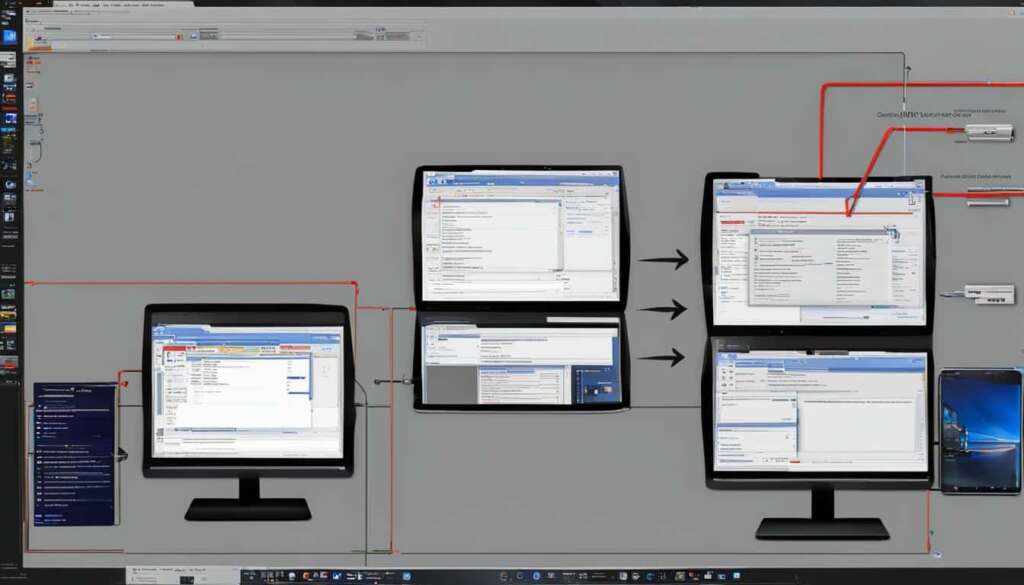Table of Contents
In law, PC stands for “professional corporation.” A professional corporation is a business entity that is established to provide professional services, such as accounting, law, medicine, engineering, and veterinary services. It is a variation of a regular corporation, but with certain requirements specific to licensed professionals. PCs offer limited liability protection to the shareholders, directors, and officers who must all belong to the same profession.
The formation of a PC is governed by state laws, and the list of professions required to incorporate as a PC varies by state. Some advantages of a PC include ease of ownership transfer, shared management responsibilities, and the ability to share profits without liability for others’ malpractice actions. However, PCs are subject to a flat corporate tax rate, which may limit corporate growth.
Limited Liability Company vs. Professional Corporation in Law
In the context of legal structures, it’s important to understand the difference between a limited liability company (LLC) and a professional corporation (PC). An LLC is a legal entity that combines the limited liability protection of a corporation with the tax benefits of a partnership. LLCs are recognized in all 50 states and the District of Columbia. On the other hand, PCs are one variation of a corporation that is specifically designed for licensed professionals. While both LLCs and PCs offer limited liability protection, the taxation and management structures differ.
LLCs have more flexibility in terms of taxation options, such as being treated as a sole proprietorship, partnership, or S corporation. PCs, on the other hand, are subject to a flat corporate tax rate. Additionally, LLCs have more flexibility in terms of management structure, while PCs are governed by bylaws and require the shareholders, directors, and officers to belong to the same profession.
To further clarify the differences between LLCs and PCs, take a look at the following table:
| Features | Limited Liability Company (LLC) | Professional Corporation (PC) |
|---|---|---|
| Liability Protection | Provides limited liability protection for owners. | Provides limited liability protection for owners. |
| Taxation | Offers flexibility in taxation options. | Subject to a flat corporate tax rate. |
| Management Structure | Flexible management structure. | Requires adherence to bylaws and same-profession shareholders, directors, and officers. |
As seen in the table, both LLCs and PCs offer limited liability protection, ensuring that owners’ personal assets are protected in case of legal claims. However, when it comes to taxation, LLCs have an advantage with their flexibility in choosing the most suitable tax status, while PCs are subject to a flat corporate tax rate. In terms of management structure, LLCs allow for greater flexibility, while PCs require adherence to bylaws and restrict shareholders, directors, and officers to the same profession.
By understanding the differences between LLCs and PCs, professionals can make informed decisions about the most suitable legal structure for their business needs. Whether it’s prioritizing tax flexibility, management structure, or liability protection, weighing these factors will help professionals choose the right entity for their specific circumstances.
Professional Corporation vs. Professional Limited Liability Company
When considering the differences between a professional corporation (PC) and a professional limited liability company (PLLC), it’s crucial to evaluate their specific requirements and benefits. PCs are formal entities that operate under bylaws and involve a board of directors or shareholders in decision-making. They offer various advantages, including higher allowed 401(k) contributions, tax-free employee benefits, and potential tax benefits for shareholders. PCs also facilitate the easy transfer of ownership and the potential for continuity after the owner’s death. However, it is important to note that PCs do not provide personal liability protection for individual malpractice, and there is a risk of double taxation.
On the other hand, PLLCs are easier to set up and have fewer compliance regulations. They offer protection from business debts while potentially exposing owners to personal liability. Furthermore, PLLCs have limited tax options compared to PCs. It is worth mentioning that PLLCs are a specialized form of LLC and not recognized in all states. Ultimately, the choice between a PC and a PLLC depends on the unique needs and circumstances of the professional business.
FAQ
What does PC mean in law?
PC stands for “professional corporation,” which is a business entity established to provide professional services.
What is the definition of PC in law?
In law, PC refers to a professional corporation, a variation of a regular corporation with certain requirements specific to licensed professionals.
What are the requirements for a professional corporation?
Professional corporations require that the shareholders, directors, and officers all belong to the same profession. The formation of a PC is governed by state laws, and the list of professions required to incorporate as a PC varies by state.
What are the advantages of a professional corporation?
Some advantages of a PC include limited liability protection for shareholders, directors, and officers, ease of ownership transfer, shared management responsibilities, and the ability to share profits without liability for others’ malpractice actions.
What is the difference between a limited liability company (LLC) and a professional corporation (PC)?
While both LLCs and PCs offer limited liability protection, the taxation and management structures differ. LLCs have more flexibility in terms of taxation options and management structure, while PCs are subject to a flat corporate tax rate and are governed by bylaws.
What are the specific benefits of a professional corporation (PC)?
PCs offer advantages such as higher allowed 401(k) contributions, tax-free employee benefits, potential tax benefits for shareholders, easy transfer of ownership, and the potential to continue in perpetuity after the owner’s death.
What risks are associated with a professional corporation (PC)?
PCs do not provide personal liability protection for individual malpractice and are subject to the risk of double taxation.
What is a professional limited liability company (PLLC)?
A PLLC is a specialized type of LLC reserved for licensed professionals, offering limited liability protection from business debts.
What is the difference between a professional corporation (PC) and a professional limited liability company (PLLC)?
PCs are more formal entities with bylaws and a board of directors or shareholders making decisions, while PLLCs are simpler to set up and have fewer compliance regulations. PCs offer potential tax benefits for shareholders, while PLLCs have limited tax options. PCs do not provide personal liability protection for individual malpractice, while PLLCs offer shielded liability from business debts.
How do I choose between a professional corporation (PC) and a professional limited liability company (PLLC)?
The decision depends on specific needs and circumstances. PCs offer advantages such as higher allowed 401(k) contributions and potential tax benefits but carry the risk of double taxation and lack personal liability protection. PLLCs are simpler to set up and have fewer compliance regulations but may face personal liability and have limited tax options.







